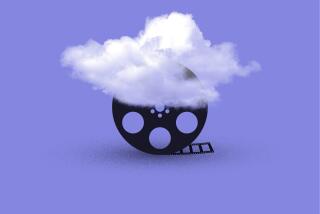Guilt and more for layoff survivors
In industries where pink slips are being passed out with abandon, the still-employed survivors are getting pretty bummed out.
Even Christopher Ruhm, an economist known for arguing that recessions are good for physical health, draws the line at hard times being good for mental health.
“I’m not claiming that people are mentally healthier during bad times,” says Ruhm, professor of economics at the University of North Carolina at Greensboro. “It’s quite possible that mental and physical health go in opposite directions. What I’d say is that in bad times, people are healthier, but not necessarily happier.”
A 2001 report, published in the Journal of the Royal Society of Medicine, reviewed studies looking specifically at mental health and job insecurity -- as opposed to outright unemployment. It found that job insecurity is a chronic stressor that leads to depression and anxiety.
“If people are threatened with losing their jobs, they report feeling bad. It ranges from demoralization to depression to more serious things,” says C. David Dooley, chairman of the department of psychology and social behavior at UC Irvine and author of the 2004 book “The Social Costs of Underemployment.”
And that includes those still marching to their cubicles after a company downsizes.
“The employment survivors are worse off as well,” Dooley says. “They may be feeling survivor’s guilt. Or they’re overworked. Often, companies make the survivors do the work of everyone who used to work there.” In fact, he’s found, the rate of depression among layoff survivors matches that of their former co-workers.
According to Dooley’s research, job stress, underemployment and unemployment all can affect mental health.. “It’s as regular as clockwork,” he says. “They’re depressed.”
Anxiety over a downturn in the economy often doesn’t have much to do with actual income, says Randi Riffkind, a West Los Angeles psychologist. “It’s their attitude that’s the determining factor in how much stress they feel,” she says.
So, if you find yourself spiraling down into gloom and doom -- things are bad, they’re going to get worse, I’ll lose my job, then I’ll lose my health insurance, then I’ll lose my house -- try to make yourself stop, Riffkind says.
“Notice the thoughts and then consciously turn the message around. Not a Pollyanna kind of thing, but something realistic, like, ‘I’ve been through difficult times before, and I’ll get through this.’ ”
More to Read
Inside the business of entertainment
The Wide Shot brings you news, analysis and insights on everything from streaming wars to production — and what it all means for the future.
You may occasionally receive promotional content from the Los Angeles Times.










